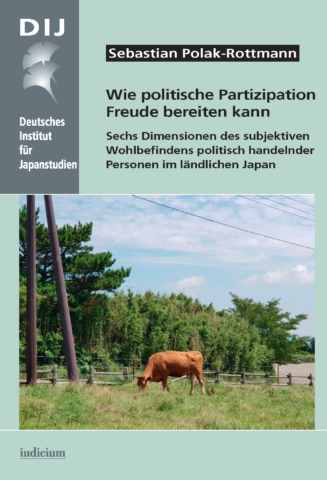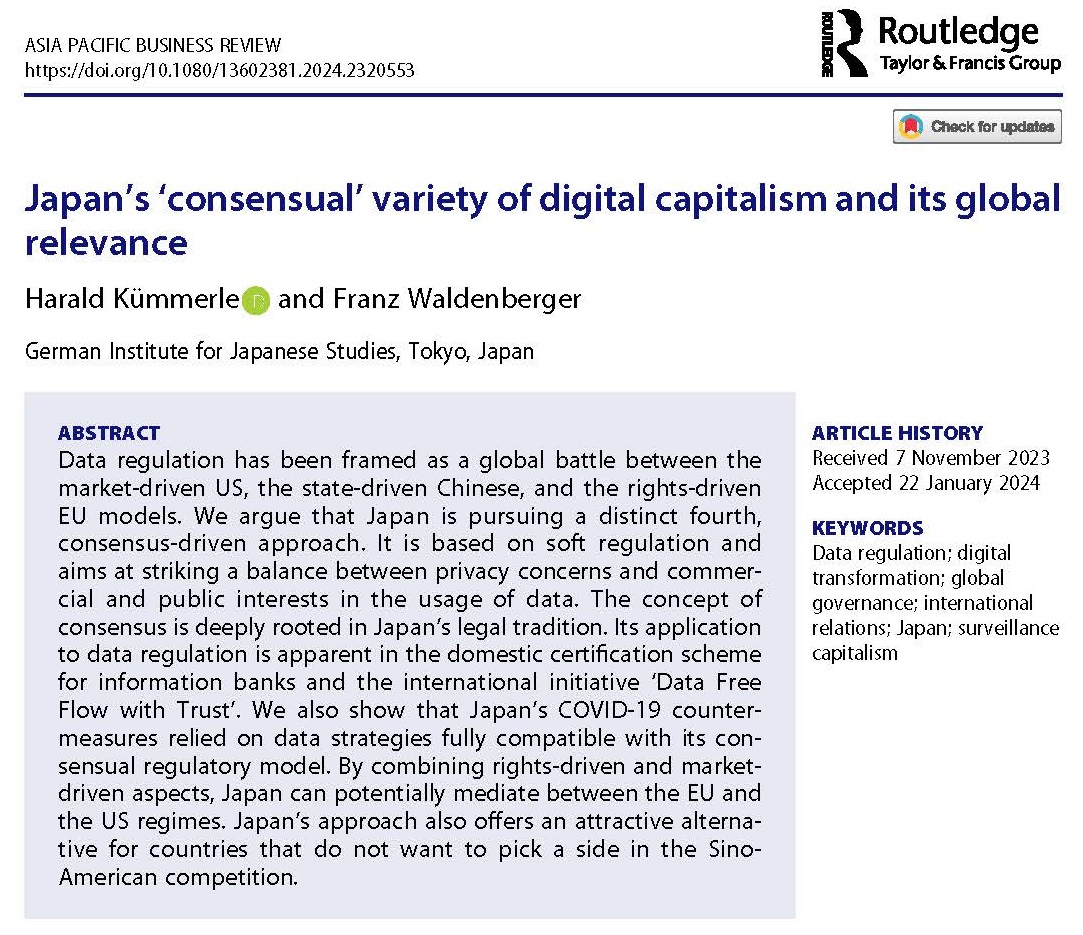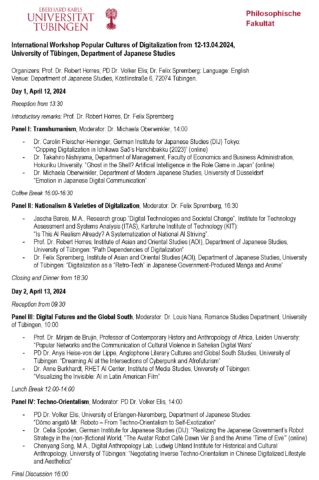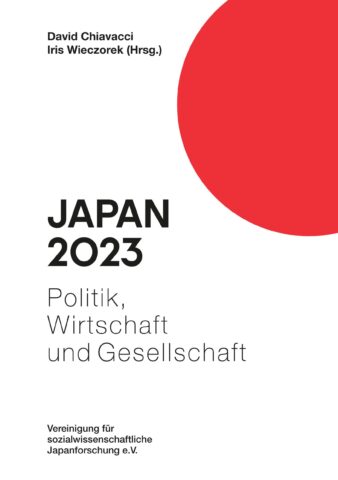Events and Activities
Hybrid Study Group on Japanese Environmental Attitudes

The role of institutional and governmental policies in combating climate change is crucial, yet their success hinges on public compliance and support. The willingness of people to modify their individual habits directly impacts the effectiveness of climate protection measures. Using survey data from the International Social Survey Programme Environment module for Japan between the years 1993 and 2020, this presentation discusses how the perception and reaction to environmental issues and climate change has evolved. The analysis centres on pro-environmental attitudes, willingness to make sacrifices to protect the environment, environmental self-efficacy, and beliefs in external solutions to the climate crisis. The presentation aims to shed light on the intricate relationship between individual attitudes, societal trends, and policy effectiveness in the context of climate change, ultimately providing insights that could guide future strategies for fostering a more environmentally sustainable society in Japan. Details and registration here
DIJ Newsletter Spring 2024
 In the spring issue of our DIJ Newsletter we introduce new publications, new team members, guests, and upcoming events. We also report on Alumni news as well as on a selection of our recent academic and outreach activities. We hope you will enjoy exploring this new edition of the DIJ Newsletter. If you haven’t done so yet, you can subscribe to receive our Newsletters directly to your inbox. The full issues and subscription form are available here.
In the spring issue of our DIJ Newsletter we introduce new publications, new team members, guests, and upcoming events. We also report on Alumni news as well as on a selection of our recent academic and outreach activities. We hope you will enjoy exploring this new edition of the DIJ Newsletter. If you haven’t done so yet, you can subscribe to receive our Newsletters directly to your inbox. The full issues and subscription form are available here.
New DIJ Monograph studies political participation and well-being in rural Japan

What motivates people to get involved in politics in their free time? How can they derive pleasure from it? In this new book publication (in German), DIJ political scientist Sebastian Polak-Rottmann analyses how people in rural Japan try to change local society through a variety of activities, such as agricultural, political, and social work. Based on extensive fieldwork in Southern Japan’s city of Aso (Kumamoto prefecture), he concludes that mutual enjoyment is a core element of the well-being of politically active people in rural Japan. Giving pleasure to others through activities therefore leads to a positive experience for both sides involved. With this reciprocal understanding of well-being, this book builds on relational concepts of happiness and embeds them in a new model that focuses on the connections between spatial, social, every day, individual, procedural, and temporal contexts. Wie politische Partizipation Freude bereiten kann (How political participation can be enjoyable) is published by Iudicium as volume 67 in the DIJ Monograph series.
Hybrid Study Group on Japanese photography in Manchuria

From 1932 to 1945, professional Japanese photographers, civilians, and soldiers took many pictures in Manchuria and North China. After the official commencement of the war with China in 1937 they began to contribute to the ‘National Reportage Movement’. Japanese authorities employed photographic propaganda to justify the Japanese government’s and Imperial Army’s activities on the continent. However, Japanese soldiers and civilians also used the camera to document and produce memories of their daily lives and experiences in China. This talk aims to bring forward new perspectives on photographic practices and on visually over- or underrepresented aspects of the Japanese occupation of Manchuria and North China. It introduces examples of private photo albums by soldiers stationed in Manchuria and discusses their creation as processes of selecting and ordering images. Drawing on visual anthropology and media history, the presentation will show connections between “imperial” and “patriotic” photography, and between vernacular and formal photographic repertoires. Details and registration here
New journal article discusses Japan’s digital capitalism and its global relevance
 A new journal article by DIJ researcher Harald Kümmerle and DIJ director Franz Waldenberger studies Japan’s consensus-driven approach to data regulation as an alternative to the market-driven US, the state-driven Chinese, and the rights-driven EU models. The authors argue that Japan’s approach is based on soft regulation and aims at striking a balance between privacy concerns and commercial and public interests in the usage of data. They also show that Japan’s COVID-19 countermeasures relied on data strategies fully compatible with its consensual regulatory model. By combining rights-driven and market-driven aspects, Japan can potentially mediate between the EU and the US regimes. Japan’s approach also offers an attractive alternative for countries that do not want to pick a side in the Sino-American competition. “Japan’s ‘consensual’ variety of digital capitalism and its global relevance” was published in Asia Pacific Business Review (online first).
A new journal article by DIJ researcher Harald Kümmerle and DIJ director Franz Waldenberger studies Japan’s consensus-driven approach to data regulation as an alternative to the market-driven US, the state-driven Chinese, and the rights-driven EU models. The authors argue that Japan’s approach is based on soft regulation and aims at striking a balance between privacy concerns and commercial and public interests in the usage of data. They also show that Japan’s COVID-19 countermeasures relied on data strategies fully compatible with its consensual regulatory model. By combining rights-driven and market-driven aspects, Japan can potentially mediate between the EU and the US regimes. Japan’s approach also offers an attractive alternative for countries that do not want to pick a side in the Sino-American competition. “Japan’s ‘consensual’ variety of digital capitalism and its global relevance” was published in Asia Pacific Business Review (online first).
DIJ researchers at ‘Popular Cultures of Digitalization’ workshop
 DIJ researchers Carolin Fleischer-Heininger and Celia Spoden will present their latest research results at the international workshop “Popular Cultures of Digitalization” on April 12 and 13. Carolin will present her paper “Cripping digitalization in Ichikawa Saō’s Hanchibakku (2023)” in the first panel on Transhumanism on Friday. On Saturday, Celia will give her paper “Realizing the Japanese Government’s Robot Strategy in the (non-)fictional World: The Avatar Robot Café Dawn Ver.β and the Anime ‘Time of Eve'” in the last panel on Techno-Orientalism. The workshop is organized by DIJ alumni Robert Horres, Volker Elis, and Felix Spremberg at the University of Tübingen’s Department of Japanese Studies.
DIJ researchers Carolin Fleischer-Heininger and Celia Spoden will present their latest research results at the international workshop “Popular Cultures of Digitalization” on April 12 and 13. Carolin will present her paper “Cripping digitalization in Ichikawa Saō’s Hanchibakku (2023)” in the first panel on Transhumanism on Friday. On Saturday, Celia will give her paper “Realizing the Japanese Government’s Robot Strategy in the (non-)fictional World: The Avatar Robot Café Dawn Ver.β and the Anime ‘Time of Eve'” in the last panel on Techno-Orientalism. The workshop is organized by DIJ alumni Robert Horres, Volker Elis, and Felix Spremberg at the University of Tübingen’s Department of Japanese Studies.
Japan 2023: Articles by DIJ researchers and alumni on Japanese society, economics, history, and politics

The latest issue of the Japan Jahrbuch, the yearbook published by the German Association for Social Science Research on Japan, includes four articles (in German) written by current and former DIJ researchers on Japanese society, economics, history, and politics. DIJ director Franz Waldenberger and Kostiantyn Ovsiannikov (Atsugi) provide a quantitative review of Japan’s municipalities in demographic transition, while DIJ economist Markus Heckel assesses the Bank of Japan’s monetary policy under Haruhiko Kuroda and Kazuo Ueda. DIJ historian Torsten Weber and Anke Scherer (Bochum) analyse recent developments in historical debates and historical consciousness in Japan. Former DIJ senior research fellow Christian G. Winkler (Fukuoka) examines domestic Japanese politics in 2022/2023. The volume is edited by DIJ advisory board member David Chiavacci and DIJ alumna Iris Wieczorek. For more details please see the table of content. The book is available as softcover and e-book from the publisher here.
Hybrid Study Group on Political Economy of Green Industrial Policies in East Asia
 Green industrial policies are at the center of a distinct sustainability transformation process in East Asia, most notably in China, Japan, and South Korea. These East Asian late-capitalist economies differ in many ways but also share strong commonalities that distinguish them from Western capitalist types. The three countries are now taking a leading role in developing green technologies, industries, and exports. In fact, they have been able to occupy crucial parts of the global value chain in green industries and the international political economy of sustainability. This presentation investigates why the three East Asian countries succeeded in green technology leadership but lack behind in achieving other environmental goals. What are the distinct characteristics that distinguish them from Western market economies and what are the lessons that can be drawn for countries in the Global North and the Global South alike? Details and registration here
Green industrial policies are at the center of a distinct sustainability transformation process in East Asia, most notably in China, Japan, and South Korea. These East Asian late-capitalist economies differ in many ways but also share strong commonalities that distinguish them from Western capitalist types. The three countries are now taking a leading role in developing green technologies, industries, and exports. In fact, they have been able to occupy crucial parts of the global value chain in green industries and the international political economy of sustainability. This presentation investigates why the three East Asian countries succeeded in green technology leadership but lack behind in achieving other environmental goals. What are the distinct characteristics that distinguish them from Western market economies and what are the lessons that can be drawn for countries in the Global North and the Global South alike? Details and registration here




 Open Access
Open Access
